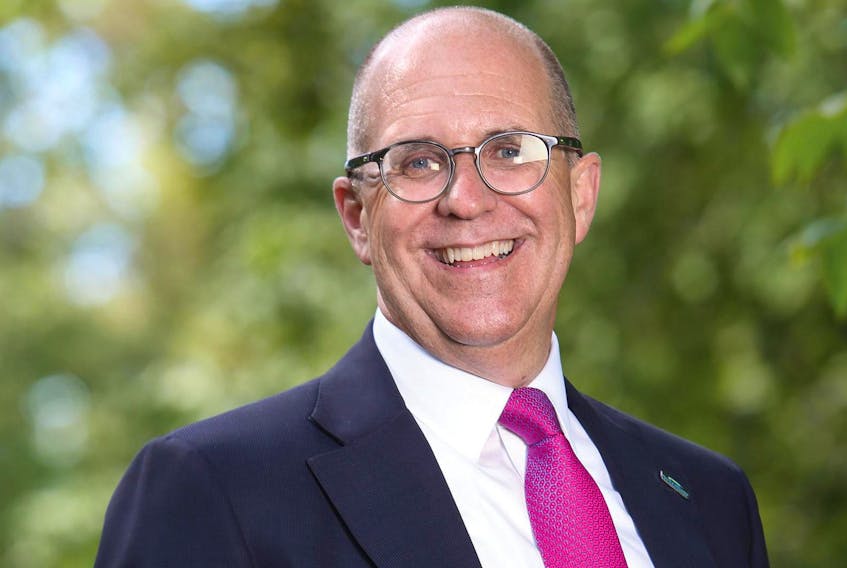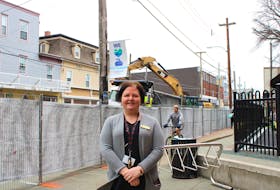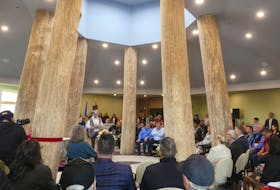How do Nova Scotians know all the COVID-19 health restrictions are actually necessary?
Patrick Sullivan, president of the Halifax Chamber of Commerce, says most people are willing to trust that the new restrictions are needed to defeat the spread of the coronavirus, but the business community would like to see more of the epidemiology behind decisions by provincial health officials.
For instance, restaurants and bars must now stop service by 9 p.m. and close by 10 p.m., an hour earlier than before Friday’s announcement. Sullivan questions whether that one-hour difference will result in fewer COVID cases.
He also wonders why the province put the restrictions in place for a month, when the incubation period for the virus is four or five days.
“P.E.I. did a circuit breaker for three or four days . . . and we (in Nova Scotia) seem to be getting a little stricter more quickly, which is a good thing, but I don’t think we need to be stricter more quickly and longer,” Sullivan said in an interview.
He can understand why health authorities are moving quickly to tamp down the spread of COVID-19 and, overall, most people would say they have been handling it well, considering the low number of cases in Nova Scotia.
“I think we all are happy there were quick actions, but I think businesses may question some of the actions that have occurred. You know, like closing restaurants one hour early when businesses, and all of us really, aren’t being given all the details on the epidemiology,” said Sullivan.
“There is an element of concern by everyone, I think, as evidenced by the number of people who got tested this past weekend (Nova Scotia completed 3,931 COVID-19 tests on Sunday). Everyone wants this to be over and everyone wants to do what they can to support public health as we go forward,” he said, but not if it isn’t necessary.
After speaking to “a senior medical professional” with the province, Sullivan said, he was told there is concern that anywhere people are unmasked, such as in restaurants and bars, will result in an increase in cases.
But, he said, there are consequences to reducing the hours of operation for the food and beverage sector, such as the thousands of servers who will have their hours cut once again. Over a two-week period, said Sullivan, the changes mean workers will have their pay cut by 10 hours.
He said he's not going to ask for the restrictions to be eased right now, but he is more likely to push for the time period to be reduced in a couple of weeks.
Right now, Sullivan is urging patrons to support local businesses by ordering takeout, purchasing gift cards and visiting a restaurant.
The following restrictions in Nova Scotia continue through March 26, with an extension possible:
- Restaurants and licensed establishments must stop service by 9 p.m. and close by 10 p.m.
- Faith-based gatherings can have 150 outdoors or 50 per cent capacity to a maximum of 100 indoors.
- Wedding ceremonies and funerals can have 10 people including the officiant, but there can be no wedding receptions and no funeral visitation or receptions.
- Sports events, special events, arts and culture events and festivals are not permitted
- Sports practices and training and arts and culture rehearsals can have 25 people without physical distancing, but there can be no games, competitions, tournaments or in-person performances and there can be no spectators
- There can be no more than 25 people involved in a virtual performance, including performers and people managing the recording or livestream.
- Business and organized club meetings and training can have 25 people. Physical distancing is required except when emergency responders need to be closer than two metres for training.
- Residents in long-term care homes can only have visits from their designated caregivers and can only leave for medical appointments or for a drive.
Nova Scotians have also been asked to avoid all non-essential travel within the province and elsewhere, especially to and from the restricted areas of the Halifax region and Hants and Lunenburg counties.









